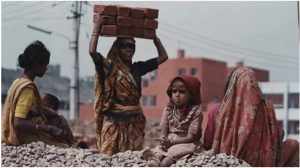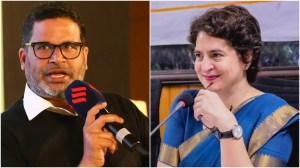Abhishek Singhvi interview: ‘Uttarakhand UCC’s live-in provision is surveillance by registration…directly violative of many SC judgments on privacy, autonomy & Art 21’
‘This UCC is actually over 80% imposition from Hindu laws of divorce, succession and guardianship,’ says CWC member; on Gyanvapi row, he says the ‘core question is whether Places of Worship Act allows removal of any place of worship on the assumed or proved ground of a prior structure existing underneath’
 Congress Working Committee (CWC)’s member and the party’s national spokesperson Abhishek Singhvi. (Photo:Facebook)
Congress Working Committee (CWC)’s member and the party’s national spokesperson Abhishek Singhvi. (Photo:Facebook)The Congress Working Committee (CWC)’s member and the party’s national spokesperson Abhishek Singhvi is a three-time Rajya Sabha MP and an eminent lawyer. He is currently also the chairman of Parliamentary Standing Committees on Home Affairs, Law, and Commerce. In an interview with The Indian Express, Singhvi speaks on various burning issues, ranging from the Uniform Civil Code (UCC) to the Gyanvapi and Mathura disputes. Excerpts:
Q) Uttarakhand ruled by the BJP has just become the first state to pass a UCC Bill. How do you view it as a veteran Congress leader and as a senior lawyer from legal and political points of view?
It is clearly a political and symbolic gesture, unleashed just before (Lok Sabha) elections, with the usual great event management and fanfare for which the BJP is famous. If the UCC is to have any meaning, it has to be the product of all-India consensus in a single national law. The BJP is far away from that, so it has gone ahead and done this usual tokenism, very similar to the Women’s Reservation Bill we saw a short while ago.
Q) Are there any objectionable provisions in this UCC legislation?
The most objectionable part of the UCC is this huge moral policing and intrusion regarding live-in relationships. It is astonishing that a civil code has at all brought in this topic because it does not belong to the core issues of the UCC. I call it surveillance by registration. It is directly violative of innumerable Supreme Court judgments adumbrating the rights to privacy, autonomy and Article 21 generally.The harassment arising will be unending and serious. You are allowing even third parties to complain and parental, governmental and third party intrusion and harassment is inevitable. The reason given for it is laughable. Crimes against women are not prevented by registration.
Secondly, this UCC is actually over 80 per cent imposition from the Hindu laws of divorce, succession and guardianship. This is largely a unilateral imposition of the rules governing the majority community with minimal effort at consensus and being done at a time when India has the most divisive ambiance in living memory. The constitutional reference to UCC was put in Article 44 as the approximation of an ideal like abolition of liquor in Article 47 and provision of adequate means of livelihood in Article 39 (a) — not as a sudden, piecemeal, state imposition before elections.
Thirdly, is it not anomalous and strange that the government’s own Law Commission barely a couple of years ago says UCC is “neither necessary nor desirable” and merely by changing its members, the government gets a new report. That itself reduces its credibility.
Q) It is said that many of the BJP governments will enact a similar Uniform Code?
This is a contradiction in terms, a delicious paradox. You will supposedly have a series of differing state enactments which will be identified by the oxymoron “uniform”. How can multiple family law regimes of differing diversity in different states be called a Uniform Code. It is linked to what I call limping family laws. The Uttarakhand UCC applies to any resident of Uttarakhand even though he may be working elsewhere or travelling elsewhere. It applies even if one partner is resident in Uttarakhand. So we will now have artificial changes of residence by persons who will want to escape the rigours of the draconian registration requirements. Will we have people creating domiciles and residences in other parts of India to evade this law?
Linked to this is the fact that there are several Central laws already in existence – be it for Hindus or Parsis or Christians or Muslims. Clearly, under the Seventh Schedule of our Constitution, the Uttarakhand UCC cannot be operative unless and until it obtains Presidential assent because the inevitable conflict between it and the Central laws will render it void. I do understand, of course, that Presidential assent will be given for the asking.
The clear violation of all norms of privacy and liberty and the draconian policing of relationships which are not marriage but in the nature of marriage will clearly violate so many judgments of the Supreme Court – from Khusbhoo to Navtej Johar to the more recent same-sex marriage case Supriyo— apart from being completely inconsistent with Article 21. Good or bad I don’t know, but HUF and coparcenary rights, especially qua succession, seem to have also been abolished after the Uttarakhand UCC because no provision preserves them. I don’t know the reaction of the Hindu community to this.
Q) Are there any positive aspects in the UCC passed by the Uttarakhand Assembly?
Absolutely. For example, all children, whether the product of live-in relationships or marriage, are treated as legitimate and, more importantly, are given all other rights which are available to legitimate children. I also have no problem with the 18 and 21 years of uniform ages for females and males to marry. Some other anachronisms have been ironed out: for example, class one heirs earlier did not include the father of the deceased, which has now been added.
In the end I would say that unity is far more important than uniformity and the Constitution’s commitment is no less to cultural accommodation while talking of the UCC in the Directive Principles. The UCC’s reference in the Constitution cannot be used to put the state inside the home and the private lives of people nor is it supposed to be a battering ram for India’s mosaic of multiculturalism.
Q) The courts are entertaining petitions on Gyanvapi and Mathura disputes despite the Places of Worship Act, 1991.
The core question which is being ducked by everyone, by all stakeholders, is not whether there was a temple below the mosque or not. The core question is whether the Places of Worship Act allows the removal of any place of worship on the assumed or proved ground of a prior structure existing underneath. That question had not been answered by any court and, unfortunately, that is the logically prior and threshold question.
Q) Do you apprehend that the BJP government will amend or repeal the Places of Worship Act?
Firstly, I can’t answer that question. You need to ask the government. Secondly, no one should shake the confidence of diverse stakeholders of the nation on the basis of some knee-jerk or short-term reactions.
- 01
- 02
- 03
- 04
- 05





























